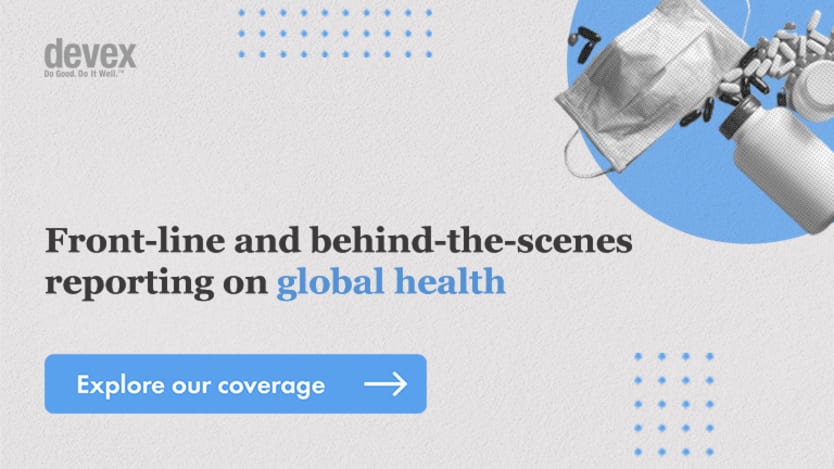
The International Committee of the Red Cross made its first delivery of medical supplies, including essential medicines, into Tigray since September, the organization said in a press release Wednesday. The government had imposed a de facto blockade shipment of medicines into the region for months amid the ongoing war, provoking a wide-scale health crisis.
The World Health Organization has pleaded for the Ethiopian government to allow humanitarian access to the region. Dr. Tedros Adhanom Ghebreyesus, the director-general of the agency, said the government has not permitted it to deliver medical supplies to Tigray since mid-July.
An ICRC spokesperson told Devex this new shipment includes surgical supplies and essential drugs that "should be sufficient to treat about 200 injured people." An estimated 3.9 million people in Tigray need health services and interventions, according to the United Nations Office for the Coordination of Humanitarian Affairs.
Severe shortages: As a result of the blockade, health workers have reported a lack, or severely limited access, to diabetes medication, dialysis services, chemotherapy drugs, anesthesia, antibiotics, and antiretroviral treatment, as well as shortages of oxygen and blood. Last week, Devex published an article documenting the systematic destruction of the health systems in Tigray, including deliberate attacks and looting by militants to health facilities.
"In Tigray, single-use items such as gloves, surgical materials and even chest drains are being washed and reused, increasing the risk of infections. In some places, doctors have replaced disinfectant by salt to clean wounds," wrote Apollo Barasa, the health coordinator at the ICRC delegation in Ethiopia, in a press release last week. "Patients are receiving expired medications, oxygen plants are not working anymore, and some health facilities cannot provide routine vaccines.
Sustainable access: While ICRC said it had the “support” and “facilitation” of authorities to make this delivery, it also stressed the importance of continued cooperation.
“It is of paramount importance that these vital deliveries continue,” tweeted Patrick Youssef, regional director of ICRC Africa. The organization said it plans to organize other medical shipment deliveries in the coming weeks. It is also supporting health facilities in the neighboring Amhara and Afar regions, which have also experienced severe damage to health systems.
Update, Jan. 26, 2022: This article has been updated to include comments from an ICRC spokesperson and figures from OCHA.

